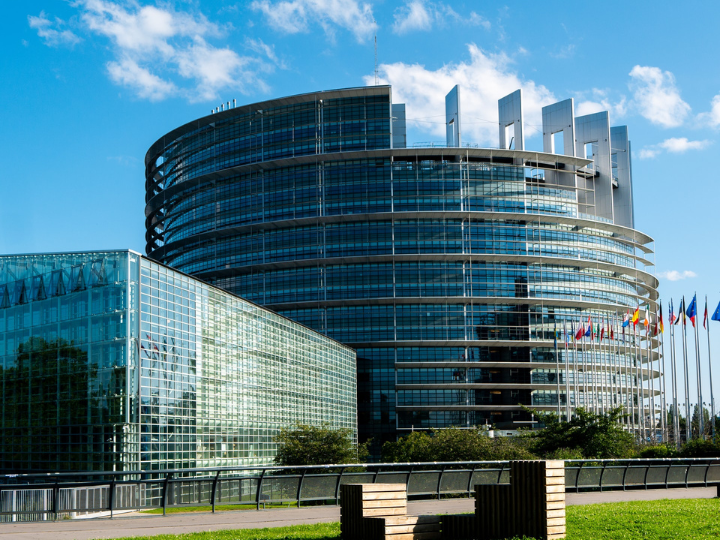by Louis Drounau*
European institutions must strengthen oversight of the funding of European parties, writes Louis Drounau, who gives an example of potential maladministration.
Political parties are cornerstones of modern representative democracies. And, in exchange for endowing them with access to the highest positions of power, their activities and funding, both public and private, come under strict scrutiny.
In the absence of a full-fledged political union at the European level, however, it is not surprising that the funding of European political parties has not generated nearly the same level of scrutiny. After all, their total funding, under €50 million in 2019, is only a drop of the EU’s budget and far lower than the funding of their national counterparts.
In practice, the private funding of European parties is monitored by the Authority of European Political Parties and European Political Foundations (APPF), which receives, verifies and publishes the list of donations and contributions accepted by European parties. But private funding typically accounts for only 10-15% of these parties’ total funding.
The remainder of their funding comes from European taxpayers’ pockets via European public funding – although, in all fairness, contributions from national member parties (which represent the vast majority of “private funding”) also mostly come from the pockets of citizens via the public funding of national political parties.
According to EU law, European parties’ public funding stems from the budget of the European Parliament, which is in charge of its disbursement; the APPF plays no role in this process. However, once European public funding has been paid out by the European Parliament, who is there to provide the necessary oversight?
An illustrative example is that of MEP Corina Cretu. Elected in January 2007, following Romania’s accession to the EU, Ms Cretu was a member of the Partidul Social Democrat and of the Party of European Socialists (PES). In 2019, however, Ms Cretu was elected on the list of PRO Romania, which belongs to the European Democratic Party (EDP). In the European Parliament, she has continually sat with the socialists of the S&D group.
Since the 2019 European elections, both the EDP and the PES have listed Ms Cretu as one of “their” MEPs in their application for European public funding – 90% of which is attributed in proportion to European parties’ number of MEPs. For her part, Ms Cretu confirmed to European Democracy Consulting and to both European parties involved that her change in national party affiliation had no impact on her European party affiliation and that she remained a member of the PES – calling her presence on the EDP list a “misunderstanding”.
To this day, the declarations of the PES and EDP on the APPF’s website remain unchanged, and the EDP even lists her as a “national delegation representative” on its website.
Documents accessed by European Democracy Consulting indicate that the European Parliament considered Ms Cretu, for the purpose of party funding, as a member of neither political party in late 2019. However, by late 2020, and despite no changes in her situation, the European Parliament chose to consider Ms Cretu as a member of the EDP, and, by February 2021, the APPF also listed Ms Cretu as a member of the EDP. But by late 2021, the European Parliament recognised one fewer MEP for the EDP than the APPF.
How can we ensure oversight for the disbursement of public funds in such cases? In the documents accessed by European Democracy Consulting, the sections indicating the European Parliament’s reasoning were redacted. Presented with Ms Cretu’s declarations, the European Parliament also declined to explain its position and its changing assessment.
Asked to consider a potential maladministration, the European Ombudsman refused to assess the complaint’s merits, arguing that the European Court of Auditors was better placed. The ECA, for its part, indicated not initiating audits at the request of third parties and that information provided simply may be used in future audit tasks.
But the case of Ms Cretu opens the door to an even wider question: should MEPs’ European party membership be decided upon their own personal affiliation or instead be based on the affiliation of their national party?
The Regulation on European parties provides that, for public funding purposes, MEPs members of more than one European party are considered a member of the European party that their national party belongs to. However, this says nothing of cases where MEPs have a single affiliation that simply differs from that of their national party.
The European Parliament’s administrative services answered this question by creating the concept of “indirect membership”, referring to MEPs who are members of national parties themselves members of a European party. This concept is absent from EU law, which instead says that public funding is based on the number of MEPs “who are members of [a] European political party”.
In doing so, the European Parliament denies MEPs their freedom to financially support, via their individual membership, the party of their choice. Worse, it has removed the need for European parties to have at least “their” MEPs as full individual members, who would have demanded to be given decision-making rights within the party.
As a result, European parties only count a handful of individual members with voting rights; they have failed to include citizens as members and to develop any semblance of internal democracy, leaving the decision-making in the hands of national party leaders.
As MEPs now consider the Commission’s proposals for the reform of European parties, they must secure their own rights as individual actors in the European party system, free from national party affiliations, and ensure institutional oversight – first and foremost, by extracting European parties’ funding from the Parliament’s budget and entrusting the APPF with its disbursement, under the control of the European Court of Justice.
*founder of European Democracy Consulting, which focuses on reforming European institutions, including European political parties and European elections
**first published in: www.euractiv.com




 By: N. Peter Kramer
By: N. Peter Kramer
